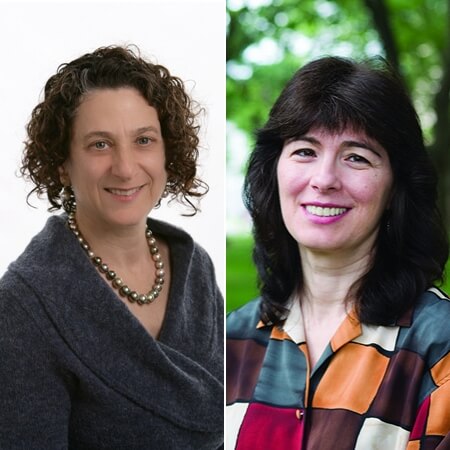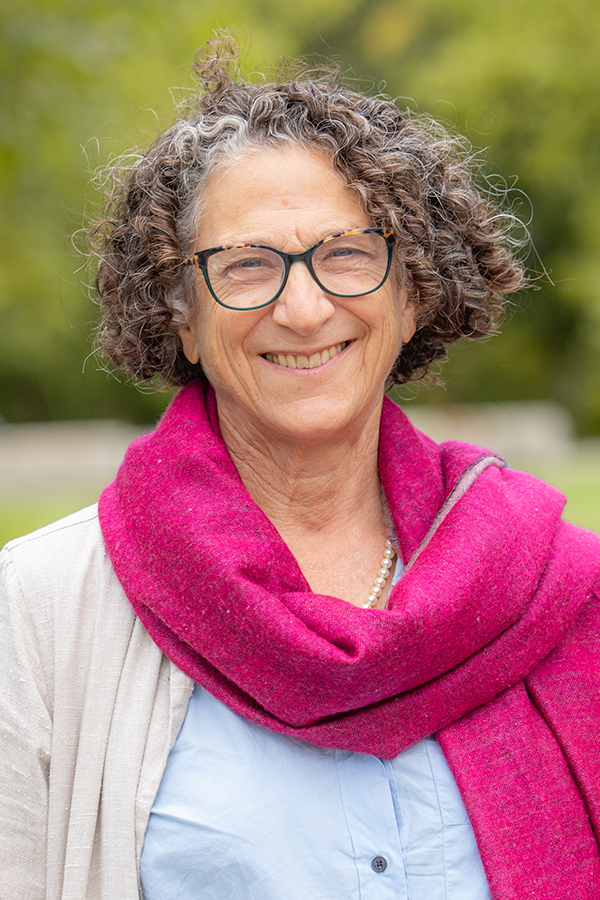News
Cynthia Dwork (left) and Joanna Aizenberg (right), have been selected as members of the American Philosophical Society
Two leaders in materials and computer science at the Harvard John A. Paulson School of Engineering and Applied Sciences (SEAS) have been selected as members of the American Philosophical Society, the oldest learned society in the United States.
Joanna Aizenberg, the Amy Smith Berylson Professor of Materials Science and Professor of Chemistry & Chemical Biology, and Cynthia Dwork, the Gordon McKay Professor of Computer Science, join a diverse field of distinguished scholars and leaders invited to join this year’s class.
Aizenberg is the director of the Kavli Institute for Bionano Science and Technology and a founding Core Faculty and Platform Leader at Wyss Institute for Biologically Inspired Engineering. Her research explores the design principles that allow biological organisms to adapt to their changing surroundings. Her lab studies glass structures in sea sponges, the lens-covered skeleton of brittlestars, and the slime on the top of bacterial colonies to elucidate the relationships between material structure and function.
Her achievements in materials synthesis have included the invention of the self-cleaning, self-healing Slippery Liquid-Infused Porous Surfaces (SLIPS), and SMARTS: active materials that automatically and reversibly change their physical structure in response to chemical signals, triggering new chemical reactions on cue.
Cynthia Dwork, who will join SEAS in January 2017, is a pioneering theoretical computer scientist who has made important contributions in the fields of privacy, cryptography and distributed computing. She is currently a distinguished Scientist at Microsoft Research in Silicon Valley.
Dwork is known for placing privacy-preserving data analysis on a mathematically rigorous foundation. A cornerstone of her research is differential privacy, a strong privacy guarantee and a collection of methods that allow researchers to analyze large data sets containing sensitive personal information – such as medical and mortgage application records – while preserving the privacy of the individuals whose information is contained therein.
The American Philosophical Society was founded by Benjamin Franklin in 1743 for the purpose of “promoting useful knowledge.” It supports research through grants and fellowships, lectures, publications, prizes, exhibitions, and public education. Its scholars have access to a research library of manuscripts and other collections internationally recognized for their enduring historic value.
Cutting-edge science delivered direct to your inbox.
Join the Harvard SEAS mailing list.
Scientist Profiles
Joanna Aizenberg
Amy Smith Berylson Professor of Materials Science and Professor of Chemistry & Chemical Biology
Cynthia Dwork
Gordon McKay Professor of Computer Science
Press Contact
Leah Burrows | 617-496-1351 | lburrows@seas.harvard.edu


